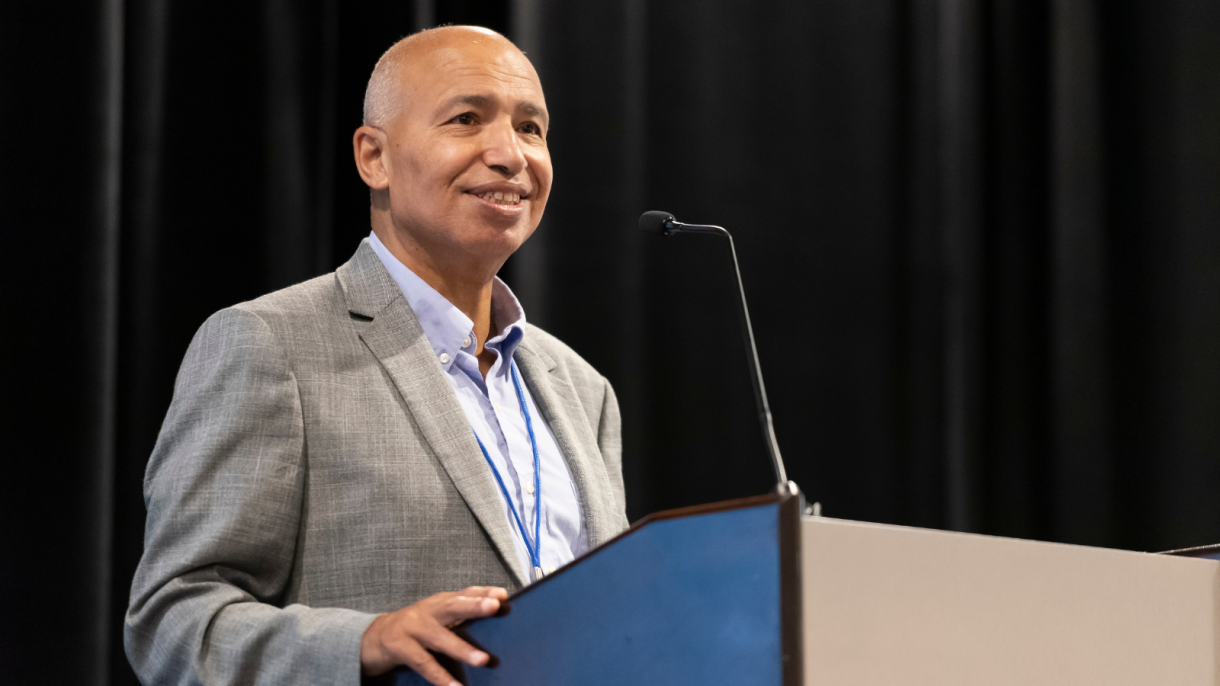
Seen and Heard at Duke’s 2023 New Faculty Orientation
Starting a new job can be hard for anyone, but imagine starting that new job alongside dozens of other people in your shoes. That makes it a little easier, right?
To help foster community among new faculty and provide resources critical to starting out, Duke held its 2023 New Faculty Orientation in October. The program showed faculty what to expect in terms of their first year at Duke, provided tips to navigate their career growth, set them up for a strong start teaching and engaging students, and shared resources for research and interdisciplinary opportunities.
Welcome Remarks
President Vincent Price noted the benefits to his own academic career of forming connections with people whose backgrounds and experiences were very different from his own. “Social and intellectual collisions are precious in our society. They are rare,” he said, urging attendees to take advantage of Duke’s vibrant intellectual life.
Introduction to Duke University

Vice Provost Abbas Benmamoun provided an overview of the university and the Office for Faculty Advancement, sharing resources to help faculty navigate the university. Through workshops, coaching, association memberships and more, the Office for Faculty Advancement is here to help all faculty members thrive.
“We measure our success by your success. We are a resource for you.” –Abbas Benmamoun
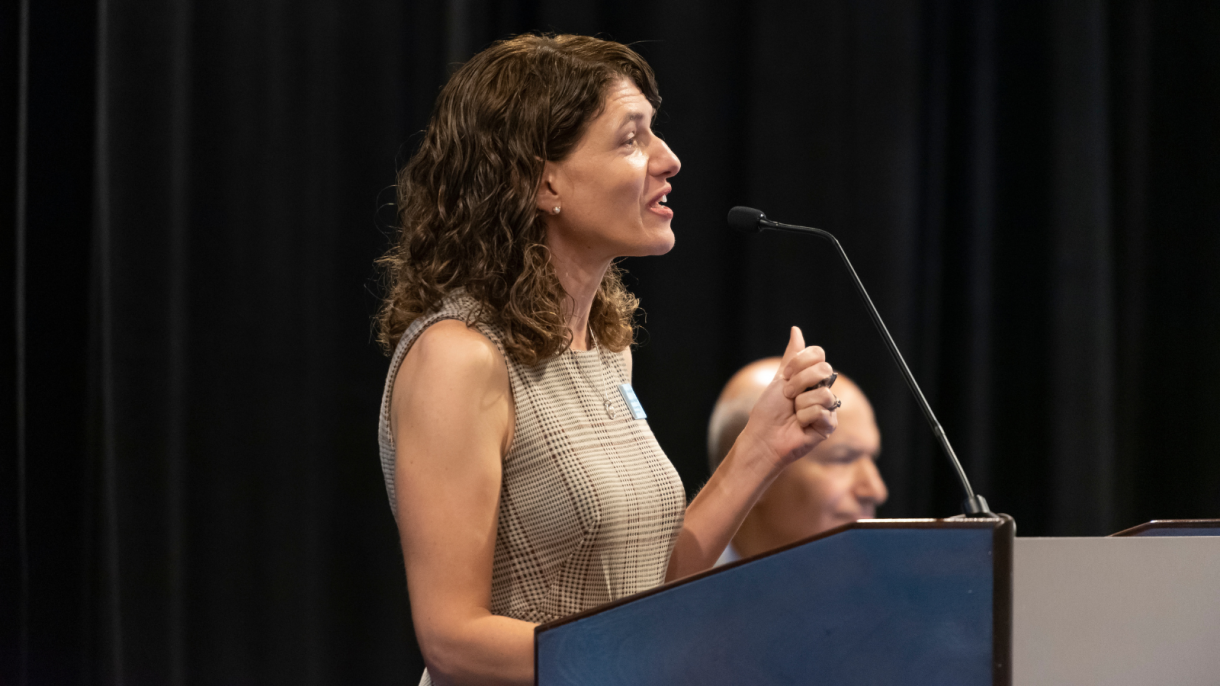
Maria Wisdom, director of faculty mentoring and coaching programs, followed Benmamoun to talk about the office’s coaching resources.
“Coaching is not the same as mentoring. Coaches ask questions. As a coach, my primary role is to be your thinking partner … an unbiased, confidential, thought partner.” –Maria Wisdom
Advancement and Promotion
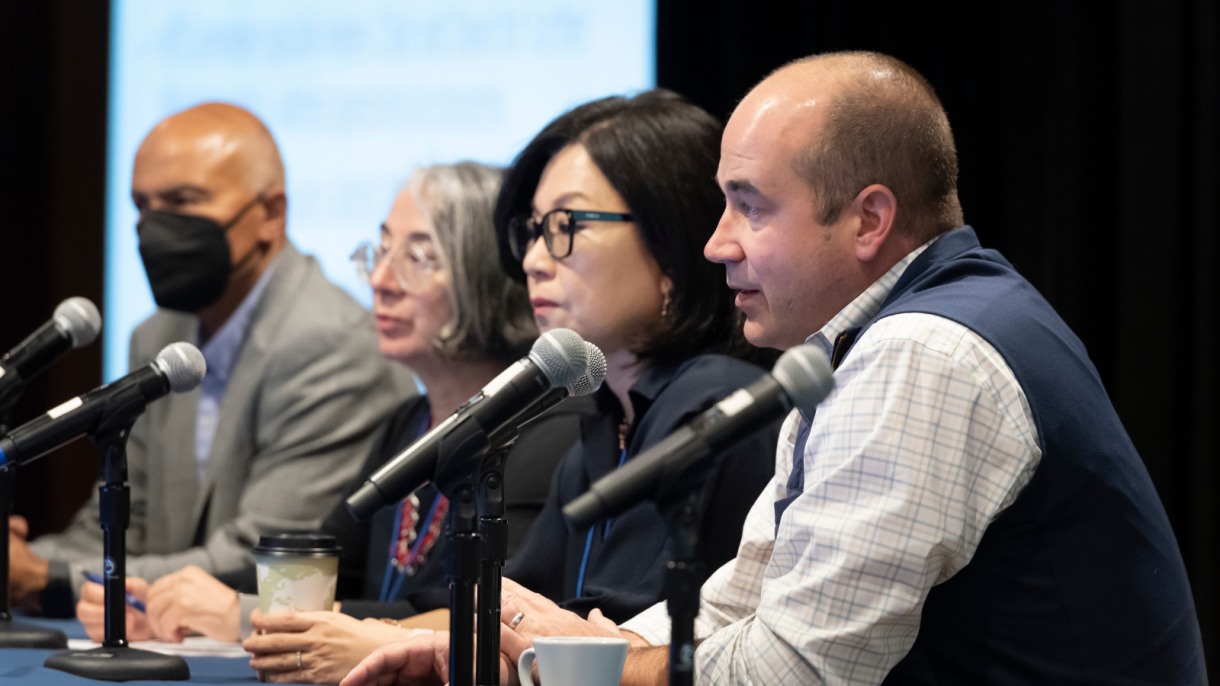
A panel of faculty leaders and senior faculty discussed how faculty can be successful and advance their career at the university. Matthew Becker, Hugo L. Blomquist Distinguished Professor of Chemistry and APT Committee Chair, encouraged the audience to look at the APT Committee as their advocate and to ask questions. Esther Kim Lee, Frances Hill Fox Professor of Theater Studies, shared how much she’s learned by serving on the committee for three years. Luciana Fellin, professor of the practice of Romance Studies, urged faculty to write down all their accomplishments so as to not forget anything come time for promotion.
“You’d be surprised at how much you can forget about what you’ve done. Write it all down.” –Luciana Fellin
A Strong Start to Teaching and Engaging Your Students
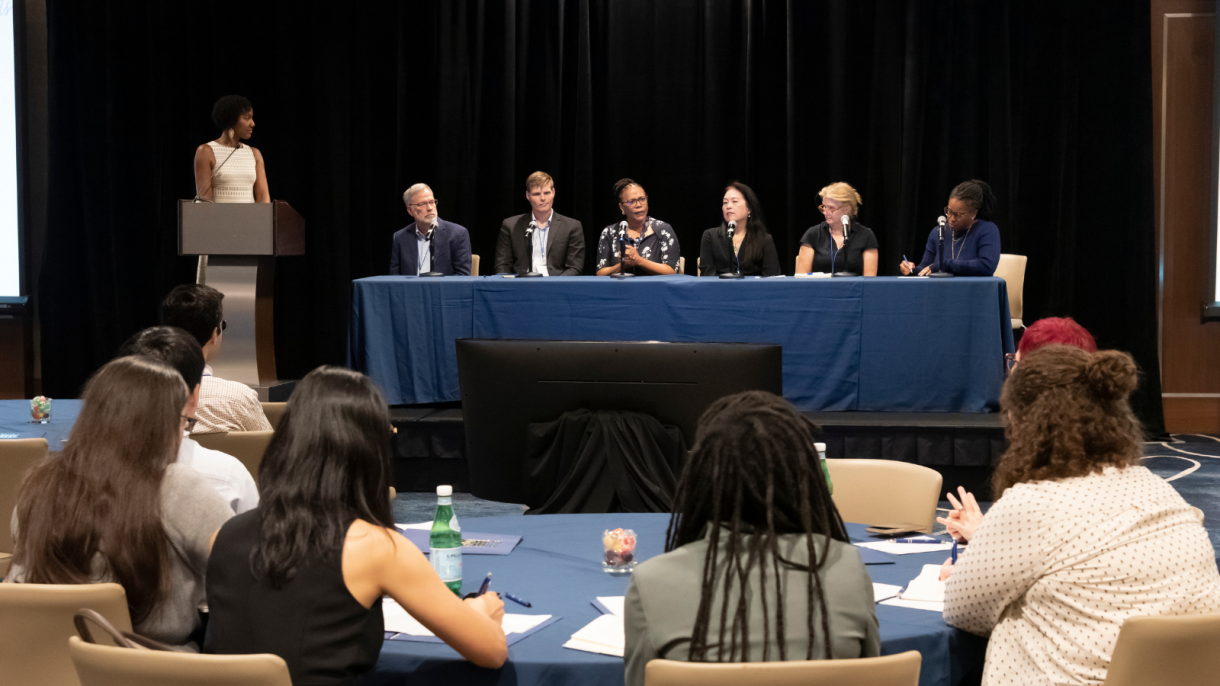
“Acknowledgement goes a long way,” said Candis Watts Smith, interim vice provost for undergraduate education. “Students have said that their best faculty are the ones that seem to care about them as human beings.”
John Klingensmith, senior associate dean for academic affairs at The Graduate School, provided an overview of the school and student demographics.
On the first-year of teaching, Jed Atkins, E. Black Byrne Associate Professor of Classical Studies, and Adrienne Stiff-Roberts, Jeffrey N. Vinik Professor of Electrical and Computer Engineering, stressed not to aim for perfection.
“It doesn’t have to be perfect that first time [you teach the course]. It can get better.” –Adrienne Stiff-Roberts
“Trust your instincts about how students feel,” said Eileen Chow, associate professor of the practice in Chinese and Japanese cultural studies. She further explained how to embolden quieter students by echoing their point and using their name.
Mary Pat McMahon, vice provost and vice president of student affairs, shared her experiences with student life and the resources available to help students, such as CAPS and DukeReach.
Research and Interdisciplinary Opportunities
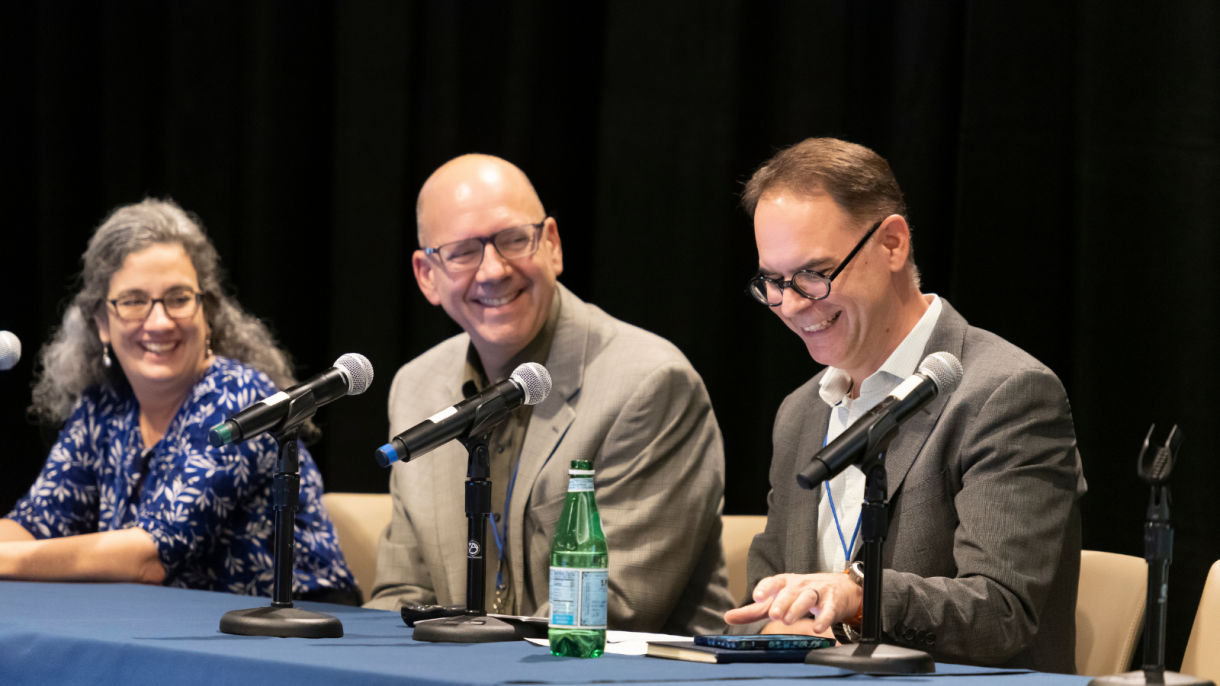
Highlighting the many opportunities available to faculty outside their departments, Ed Balleisen, vice provost for interdisciplinary studies, encouraged the new professors to explore interdisciplinary working groups and signature university educational programs like Bass Connections. Rita DiGiallonardo Holloway University Librarian and Vice Provost for Library Affairs Joseph Salem presented on what Duke Libraries can do for faculty. Mary Frances Luce, associate vice president for research and innovation, provided an overview of her office and its resources.
The First-Year Experience
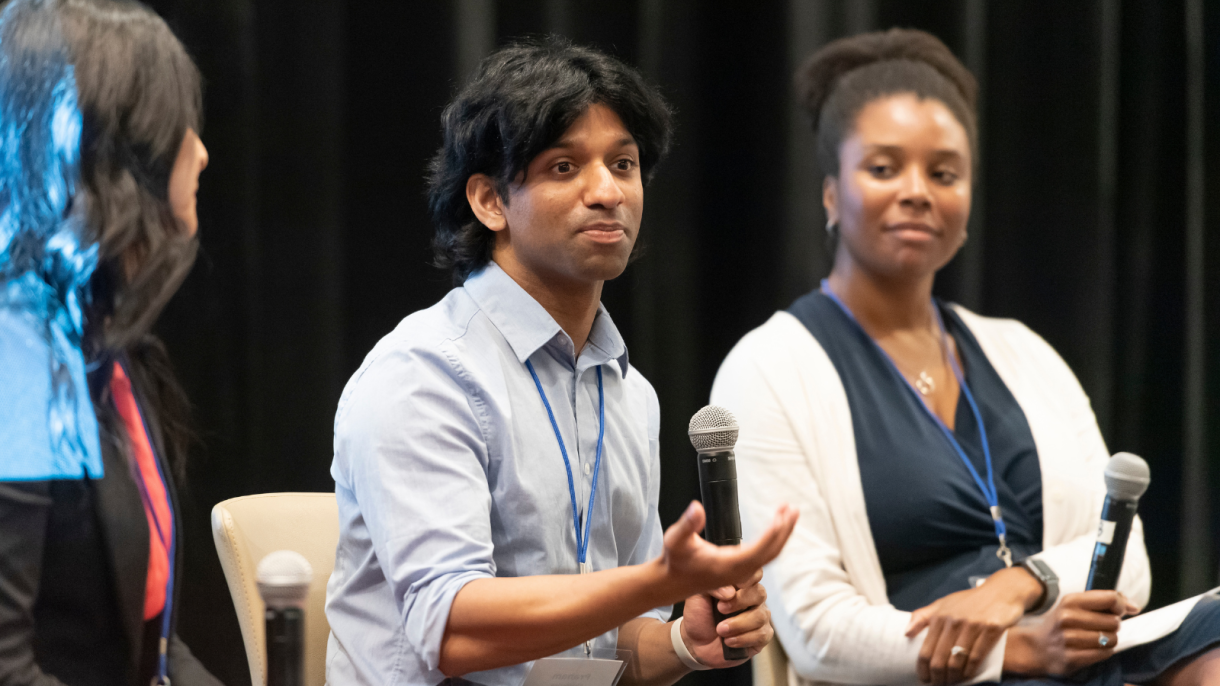
Associate Vice Provost Sherilynn Black moderated a panel discussion on the first-year experience as a Duke faculty member. On service, “there’s pressure to want to be part of everything,” said Pranam Chatterjee, assistant professor of biomedical engineering. He emphasized that it’s important to discover what’s personally enjoyable; for him, that was serving on faculty search committees.
Polly Ha, associate professor of the history of Christianity, said there’s “no shortage of chances to make connections and find support and resources.” Chantell Evans, assistant professor of cell biology, shared that she’s a member of affinity groups such as the Black Think Tank and WRAP (Writing ReseArch Productivity group for Black faculty).
“I’ve been really happy since I’ve been here.” –Chantell Evans
Closing Remarks
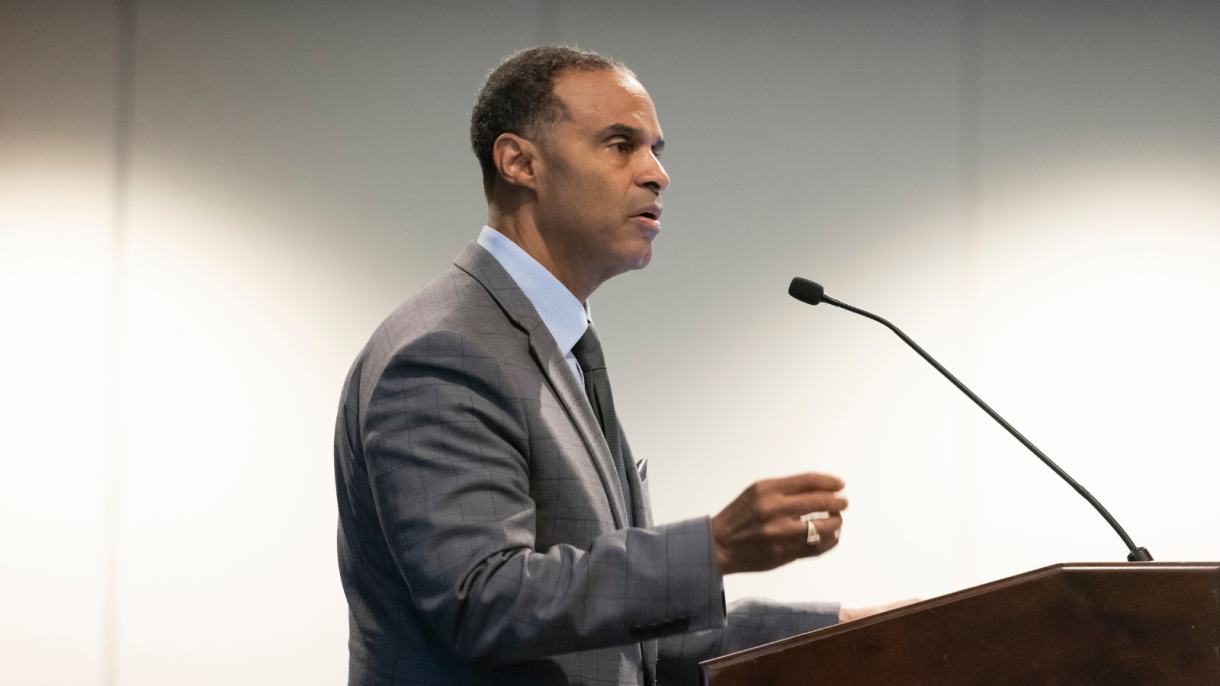
Closing out the formal program, Provost Alec Gallimore recommended faculty relish their time at Duke. “Duke is a place where you can achieve your full potential,” he said. “Find joy and meaning in the work that you do.”
In addition to these sessions, a resource fair with representatives from many Duke units allowed faculty to learn about more sources of support and – perhaps more importantly – how to get basketball tickets. This orientation was part of the Office for Faculty Advancement’s efforts to support Duke faculty members’ long-term career growth and success.